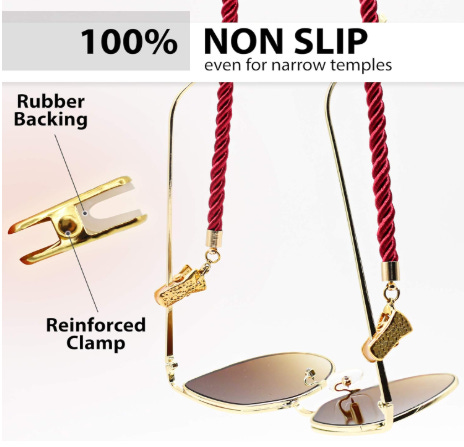The hidden value of mystery shoppers
Why secret shopper Intel still surpasses customer survey data

She walks in the door with a carefully hidden script in her pocket. Or, maybe she’s typed notes in her smartphone, glancing at them occasionally as though she’s checking texts or emails. She checks her watch to see how long it takes store associates to greet her in the aisles. She keeps track of how long it takes a manager to resolve a purchasing problem. She looks for expired signs or apparel with no clear pricing on it. She peeks her head in bathrooms and in store aisles to see if the merchandise is arranged neatly.
Sometimes you’ll even find her in bars, nightclubs, mortgage companies and ride-sharing vehicles, observing their work policy practices too. She’s a mystery to the employees and almost all of the managers. The company that hired her knows she’s human, usually from a background check or a copy of her license, but even the retail headquarters couldn’t tell you her physical description. They just know she was there after she leaves, if they bother to check the video cameras to verify her arrival and departure times.
Recommended Read: “How mystery shopping prepared me for housing discrimination ~ Black homeowners, make sure your mortgage lender treats you humanely”
She’s a mystery shopper, and corporate headquarters (or store owners) often hire her to see if their store locations are up to par. But in the age of technology and store survey receipts, is mystery shopping becoming a lost art?
ADVERTISEMENT ~ Amazon
As an Amazon affiliate, I earn a percentage for every purchase with my referral link.
What Exactly Do Mystery Shoppers Do?
Their job description is in their name: A mystery shopper is someone who shops quietly and efficiently in order to be very vocal about her results. She may be a window shopper or buy a bag full of items, so she knows how to blend in with every other shopper in the store.
The earnings for a mystery shopper depend on the amount of work that she’s willing to do, similar to a freelancer. Some are paid in free apparel or products—similar to the way Amazon Vine reviewers work with Amazon.com. (Amazon Vine reviewers are enthusiastic, unbiased reviewers in an invite-only program. These online shoppers choose items from a private list, and receive them for free. In turn, they are required to write free reviews about the product, which potentially helps additional Amazon customers want to buy these same products because of these top reviewers’ opinions.)
Mystery shoppers, on the other hand, are not shipped anything. They physically go to locations or make human-to-human calls. Unlike the window shopper or online reviewer mentioned above, the third group can make anywhere from a few hundred dollars to five digits if the work is consistent.
Recommended Read: “That time I was a mystery shopper ~ In a tech-dominant world, should companies still hire mystery shoppers?”
Companies such as Secret Shopper, which has been around for more than 25 years, guesstimate the average payment for a single shop to be anywhere from $12 to $25. Retailers can pay mystery shoppers to complete a variety of assignments, including recorded phone calls to their own businesses or recorded calls to competitors. While retail stores can hire managers to listen to recorded calls or utilize those same managers to resolve consumer disputes, store owners’ and headquarters run into a brick wall when they’re not sure that the source of store problems (or money loss) is with those same managers. They also may lose money by paying managers to do these types of tasks when their time could better be served in other parts of the stores’ daily needs.
Mystery shoppers contractually have no affiliation to the store nor any employees who work there. So, their opinions (ideally) are neutral with a goal of helping retailers receive a holistic approach of the entire store, managers included.
Are Mystery Shoppers Still Necessary in Today’s Economy?
With review sites such as Yelp, Google Reviews, SurveyMonkey, Facebook feedback and the Better Business Bureau, customers have the option of sounding off whenever they have a pleasant or uncomfortable experience in retail stores. Customers even have the option of sharing their thoughts with the store by completing surveys listed on the bottom of receipts. So why pay a mystery shopper to do it?
Retailers may not understand that these are two unique groups of people who are both providing their opinions. A mystery shopper has already agreed to give a detailed report about whatever the company needs to learn more information about. A customer usually just wants to buy a product or visit the store and leave.
According to OpinionLab via Forbes, 66% of customers prefer to voluntarily reach out on their own instead of doing surveys. Approximately 72% feel surveys (usually pop-ups) get in the way of their online shopping. Eighty percent don’t even bother completing a survey they’ve started. And 52% won’t spend more than three minutes on any survey. Retail stores also don’t always do the best job of announcing the winners of store survey contests, leaving customers wondering if anybody actually did win.
Meanwhile, a mystery shop assignment can take anywhere from a few minutes to more than an hour. It is entirely up to the company to decide how long the mystery shopper needs to be at the retail facility and how much feedback needs to be given in order to confirm the mystery shop is complete. The mystery shopper knows the complete assignment ahead of time.
Are Retailers Still Using Mystery Shoppers?
The number of mystery shoppers there are today are literally a mystery, but the Bureau of Labor Statistics guesstimates 4,800 in recent years. Mystery shoppers are contractually obligated not to disclose who they are during the shop. The assignment is almost always disqualified if store employees figure out who they are, or their feedback is incomplete or purposely incorrect.
If mystery shoppers want repeat work, even in the age of social media age, they will not mention who they’re working for. Should they do so, it makes a repeat job too easy for tech-savvy employees to figure out. It’s one of the reasons that mystery shop companies don’t often hire the same mystery shopper for the same location. If they become a “regular” customer, employees will recognize them. Relationships may form. And the mystery shopper’s analysis is no longer unbiased — or a mystery.
(Note: This post was originally published as an Upwork freelancer for RETHINK Retail.)
Did you enjoy this post? You’re also welcome to check out my Substack columns “Black Girl In a Doggone World,” “BlackTechLogy,” “Homegrown Tales,” “I Do See Color,” “One Black Woman’s Vote” and “Window Shopping” too. Subscribe to this newsletter for the monthly post on the third Thursday.
If you’re not ready to subscribe but want to support my writing, you’re welcome to tip me for this post! I’ll buy a dark hot chocolate on you. Thanks for reading!





